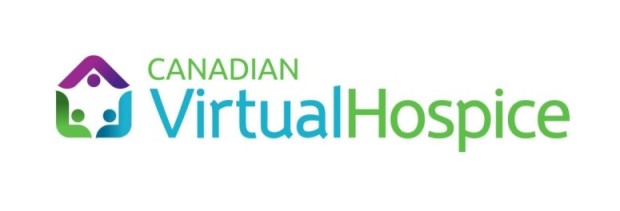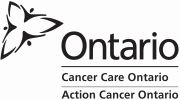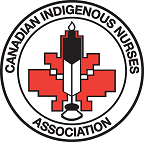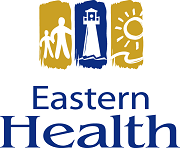Maisie
Maisie Smith is Tlingit and Northern Tutchone from Champagne and Aishihik First Nations. She was born and raised in the Yukon Territory and is part of the Daklaweidi Clan. Maisie completed her Masters degree in Counselling Psychology at the University of British Columbia and is a registered clinical counsellor with the Canadian Counselling and Psychotherapy Association.
Avoid making assumptions
Maisie explains how healthcare providers can make harmful assumptions. (2:02)
Other content for:
First Nations - New Videos
- Saying final words and letting a loved one go (1:42)
- Time, silence and respect in end of life care (2:21)
- Discharging patients to a remote community (1:33)
- A good death (0:48)
- Accessing pain control in small communities (1:09)
- Planning a discharge in advance (3:43)
- Caring in small communities (1:21)
- Using community resources to support home death (3:43)
- Opening conversations about advance care planning (1:41)
- Elders often do not talk about death or illness (1:01)
- Traditions when a person dies at home (0:43)
- How a community shows support (1:36)
- Combining traditional and Christian values (2:01)
- Death, trauma and healing in the Indigenous community (1:50)
- A good death (0:34)
- Challenges for people from rural communities traveling for care (2:13)
- The fight to live (1:37)
- Respecting a person's chosen gender (1:15)
- Two spirit and LGBTQ+ people and end of life wishes (2:26)
- Culturally safe urban health spaces (1:17)
- The importance of holistic care across healthcare settings (1:09)
- Hospice options needed for Indigenous people (1:18)
- Making plans makes a difference (1:12)
- Having conversations about end of life and grief (3:06)
- Use your five senses to engage and listen carefully (1:50)
- Dying at home (1:37)
- Helping a patient with final wishes (1:20)
- Reflecting Indigenous culture in healthcare delivery video id 410257402 not found
- Providing a safe space for your patients (1:34)
- Understanding holistic healthcare (1:03)
- Healthcare and cultural nuances (1:17)
- What cultural safety means to me (1:15)
- Celebrating life before death (2:13)
- MAID is now an option (1:28)
- Helping other families by sharing stories of suicide and loss (2:27)
- Self-care and support in my work (1:54)
- Grief is complex and differs with each situation (1:54)
- Caring for patients and families at end of life (3:36)
- Spirituality is not only about religion (0:48)
- Respecting wishes at the end of life (3:07)
- Traditions differ among families (0:48)
- Giving thanks for a peaceful death (1:26)
- Reclaiming who we are as a people (2:12)
- Trauma informed care requires an understanding of history (3:28)
- It takes a healthy child to raise a healthy village (1:20)
- Our healing affects generations (1:06)
- Religious influences in my life (4:02)
- The comfort of a Bible and prayer at end of life (1:40)
- Why we prefer our home to a hospital (1:33)
- Understanding and respecting cultural ways of knowing and wishes (3:40)
- When a loved one is on life support (1:47)
- Saying goodbye when a relationship is complicated (2:59)
- Supporting a family at the bedside of a loved one (2:35)
- Taking the opportunity to say goodbye (1:40)
- When you are "stuck" in grief (1:30)
- Different ways to help you grieve (2:55)
- Leading individuals in prayer when they are dying (2:32)
- Talking about end of life is difficult but important (1:53)
- Honouring end of life wishes (2:51)
- The importance of listening, understanding and building relationships (3:18)
- Healthcare providers must self-educate about Indigenous history and culture (0:58)
- Understanding Indigenous culture and history (3:50)
- Society could benefit from Indigenous practices and ways of knowing (3:41)
- The power of medicinal trees and plants (1:12)
- Our ancestors bring comfort at end of life (1:59)
- Using plant medicines with guidance from our ancestors (1:41)
- My diagnosis affected my work, my education and my finances (1:02)
- Using traditional medicine and western medicine (2:01)
- The strength of my grandmother (2:41)
- We're not just another chart (0:44)
- My doctor showed no empathy: Advocating for compassionate care (4:21)
- Facing a second diagnosis (1:00)
- The stress of travelling for scans and tests (1:43)
- Losing my hair (1:15)
- Talking to my children about my cancer and treatment (2:45)
- My spirituality helped me find balance and strength (2:43)
- Supporting conversations between patients and family (1:10)
- Supporting communities in the North (1:43)
- Palliative care offers many layers of care (1:22)
- Palliative care is holistic care (0:46)
- Pain control in remote communities (1:17)
- The challenges of discharge planning (1:17)
- Navigating health services (1:25)
- Social media and respecting privacy (0:52)
- We're not in this together (0:42)
- Supporting decision-making (2:20)
- A good death: Planning for the best and adapting (1:15)
- Understand individual wishes and beliefs (1:26)
- Provide culturally safe, person-centred care (2:15)
- When there aren't words for an illness or disease (0:45)
- Language around death and dying (1:08)
- Recording our values (1:23)
- Supporting patient and family decision-making (1:14)
- The benefits of a healing room in a hospital (2:15)
- Our palliative care doctor helped guide us (1:02)
- Supporting families through a palliative care journey (2:00)
- How children can honour their loved ones through ceremony (2:56)
- Reflecting on the year after my mom's death (3:04)
- Honouring our mom after she died (2:14)
- Traditions in the last few days of life (1:09)
- Everyone says goodbye in their own way (2:19)
- Honouring and caring for my mom (1:48)
- Understanding and respecting the care needs of residential school survivors (2:38)
- Hospitalization and residential school trauma (2:19)
- Caring for our Elders in community (3:49)
- Traditions when a loved one dies (2:17)
- Sharing love and support with family (2:23)
- The importance of traditional food (0:54)
- Staying at the hospital with my Auntie (2:18)
- The importance of being out on the land (0:46)
- Caring for loved ones at end of life (1:35)
- Thinking about how we can support escorts and families in need (1:59)
- Getting to know the Elders in small communities (1:51)
- I try to support people in my community who are sick (1:09)
- It's a tradition in our community to have a homemade casket (0:58)
- Talking about death can help with grief (3:06)
- My mother didn't want young grandchildren at her burial (2:00)
- It's important to talk to our children about death (2:00)
- The birth of my daughter brought joy to my sick father (1:19)
- Seeing people in remission gives us hope (0:28)
- There's no word for cancer in our language (1:34)
- When someone wants to die in their home community (1:32)
- It was very hard for me to accept my father's death (0:58)
- Managing pain medications and affect on grief (1:30)
- My father came home to die (1:12)
- My father's diagnosis (1:53)
- Understanding death and aging (3:10)
- I always want to keep learning and living for today (4:09)
- The impacts of residential school: Finding my own identity (4:10)
- Talking to our grandchildren about how things have changed (3:31)
- I speak up so our people our treated with respect (2:21)
- Talking to my husband about end of life wishes (2:26)
- My son's cancer diagnosis (3:35)
- Interpreters and navigators are very helpful (1:15)
- Learn about the community and its people (2:37)
- Making amends and asking for forgiveness (1:57)
- Knowing my own boundaries and caring for myself (1:47)
- How I think of "hope" at the end of life (1:45)
- Asking someone what they wish for at the end of life (1:34)
- Blending religious and traditional practices (1:46)
- My perspective on death and dying (0:33)
- Death "out of season": When a young person dies (2:17)
- Supporting families providing care (2:42)
- Helping people leave the world with music, calm and grace (3:44)
- Explaining the life cycle to children (3:45)
- It's about the person's last breaths on Mother Earth (2:03)
- God is waiting: Helping people who are leaving this plain (2:42)
- The fear of dying and the power of companionship (1:42)
- Completing your purpose (1:12)
- Religion, hymns and drumming (1:47)
- The Native Grieving Prayer (2:47)
- My sister is still with us in spirit (0:55)
- Ceremony for my sister (3:05)
- Talking about your pain can help you on your healing journey (1:08)
- Helping community when traumatic death occurs (2:24)
- I counsel and pray with people in my community (1:19)
- My kids feel helpless but they care for me (1:09)
- Being open with my family (2:17)
- Learning about my disease and educating others (1:08)
- Both laughter and tears are good for you (1:47)
- Healthcare providers need to make sure patients understand (1:39)
- It's important to bring an escort to appointments (2:00)
- I've learned a lot from my support group (1:24)
- I try to remain positive when I think about my cancer (2:41)
- Helping people talk about loss (2:34)
- Talking about death at end of life (2:10)
- Maintaining hope and moving through grief (2:31)
- Honoring a person as they are dying (2:18)
- Many First Nations Elders want to die at home (2:14)
- Embrace your memories (1:11)
- Self-care (1:58)
- Show compassion until the last breath (2:15)
- Gestures and beliefs that can help with grief (1:32)
- Death is not the end (1:19)
- Challenging the health system to honour culturally safer care (1:39)
- How can we best care for you? (1:39)
- Walk with a person at end of life (1:31)
- Accompanying and Elder and her family as she transitioned to the spirit world (4:13)
- When a child dies (1:34)
- Talking about end of life can help to bring comfort (2:35)
- The person legacy lives on through what they've taught me (1:11)
- Caring for all aspects of the person (1:17)
- Supporting cultural traditions and practices (3:02)
- Traditional music and spiritual care (1:14)
- Wearing a clerical collar and misconceptions about spiritual care (2:28)
- Self-care helps me stay on track and focused (2:00)
- Spritual care at end of life (2:34)
- Hospital changes to meet the needs of Indigneous patients (1:39)
- Celebrating similarities in belief systems (1:39)
- The importance of fire (1:39)
- Adapting cultural practices in health facilities (1:52)
- Community members as supports at the bedside (1:47)
- Navigating health language and health systems (2:50)
- Creating a care plan for spiritual and emotional care (1:48)
- Why cultural practices differ in remote communities (1:59)
- Providing spiritual support in a hospital setting (2:56)
- Understanding and respecting the person's wishes (4:43)
- Feel your own grief (1:45)
- Our dignity (button) blanket (2:52)
- The importance of laughter (4:58)
- Western philosophy and Indigenous philosophy (2:55)
- A doctor I'll never forget: Excellent culturally safe care (1:08)
- Meeting families where they are at (2:49)
- Educating healthcare providers about Indigenous history to improve care (2:37)
- Impact of residential schools on grief (7:30)
- Colonization, trauma and responses to dying and grief (4:15)
- Listening and taking time (5:11)
- Use clear language (1:15)
- Respecting ceremony (1:15)
- The words you use matter: How some words shut down discussion (1:04)
- Paying attention to everyone in the room (2:17)
- How I care for and protect myself (4:14)
- Having a personal relationship with the patient and family (1:21)
- Working with patients and families (4:42)
- Losing my hair (1:09)
- Cancer has brought us closer (1:24)
- Waiting for the other shoe to drop: Living with cancer (1:47)
- Support from my cancer community (0:48)
- I was offered very little support or compassion (1:13)
- Support from my husband made the difference (1:08)
- Sharing my diagnosis within our community (1:48)
- My treatment and additional diagnosis (1:33)
- My doctor is interested in my life, not just my cancer (0:54)
- My diagnosis was given with no compassion (1:53)
- Travelling for care is exhausting (0:28)
- We've faced prejudice before (0:55)
- We had to fight to have an escort for my appointments (0:42)
- Fighting to get a diagnosis (3:18)
- Staying positive helps to take the power away from the word "cancer" (3:10)
- Ceremony helps families to grieve (3:39)
- Thinking about quality of life for my mom and our Elders (2:58)
- Take time to listen to what Elders are telling you (2:01)
- Recognizing impacts the trauma of residential schools on longterm care residents (10:42)
- Supporting families to be present when the person is transitioning (1:31)
- Talking to families about the transition (3:51)
- Extensive loss and trauma complicates grief (2:29)
- Long-term care reminds some residents of residential school (2:09)
- Let the patient take the lead (0:48)
- Building trust is key to creating solid relationships (0:46)
- Asking questions and listening to answers (1:22)
- Why someone might not self-identify as Indigenous (2:28)
- Understanding the needs of the urban Indigenous population (2:48)
- Opening up a difficult conversation about death (1:53)
- End of life planning as celebrating a legacy (2:16)
- Feeling a range of emotions can be healing (0:54)
- Giving people time to consider options and make decisions (2:32)
- Questioning our assumptions about traditions or religious practice (0:57)
- Trauma informed care recognizes past experince can impact current reactions (4:12)
- Trustful and respectful communication is key (1:37)
- Talking about death, dying and palliative care (3:22)
- Decolonizing healthcare: Questioning currrent policy (1:27)
- Making space for different ways of knowing and being (2:24)
- We have to be aware of our own biases and judgements (1:42)
- What does "patient centred care" really mean? (1:09)
- There is always a power differential in healthcare (2:47)
- We are all related (1:03)
- My job can be emotionally difficult (1:30)
- Working together to return a person to community (1:54)
- When someone is dying the community helps out (1:13)
- Oldest siblings often make care decisions (1:51)
- The benefits of a hospice (1:29)
- Traveling for care impacts families and care decisions (1:25)
- Late diagnoses of people from remote communities (2:02)
- Often patients from fly-in communities are Christian (1:46)
- Family meetings and making care plans (1:31)
- Escorts are often necessary, not just for Elders (1:31)
- Responding to challenges of travelling for care from remote communities (1:56)
- All the details can be overwhelming (1:05)
- My role as an Indigenous Patient Navigator at the Cancer Centre (1:42)
- I'm grateful for my good life (2:31)
- Be kind (0:37)
- It's good to talk about ceremony (0:55)
- We have to respect people's grief (1:12)
- My grandmother was religious but also traditional (4:01)
- Helping my son cope with loss (4:01)
- Accepting the cycle of life (2:40)
- When someone dies, we help them on their journey (5:00)
- Grieving a death by suicide (2:00)
- Grief is painful whatever the age of the person (2:01)
- Supporting people going through loss (2:45)
- Discussing palliative care with patients (1:51)
- Caring for a loved one in the hospital can be hard (1:24)
- A tribute to my mom (6:37)
- Practical advice for people travelling for care (1:46)
- Care conversations when "palliative care" and "cancer" can't be used (1:07)
- Losing their support system (1:15)
- Providing palliative care at home in small communities (1:12)
- Respecting a person's rights to make informed decisions (1:02)
- Family support for care in the home (0:44)
- Never make assumptions about basic services (1:37)
- Caring for my wife (5:35)
- Building on strengths in communities (1:39)
- Medication and pain control in remote communities (2:25)
- Discharging a patient for care at home (3:42)
- Collaboration between community and health systems (1:41)
- Making decisions about treatment and leaving community (2:28)
- Care is a community responsibility (1:40)
- Grief and Indigenous healthcare providers (1:26)
- Holly Prince (1:08)
- Building trusting relationships (1:46)
- Supporting families during dying (0:57)
- Holly Prince (2:07)
- Trust, respect and honest communication (1:13)
- Adapting language about palliative care (3:16)
- Practicing true person-centred care (1:09)
- Empowering patients and families to ask questions (0:58)
- Humility and respect: Building a relationship with families (2:29)
- Providing culturally safe care (1:44)
- How communities rally when someone is ill (1:09)
- Validating caregiving in First Nations communities (2:06)
- The goal of providing care in communities (1:01)
- Quality care recognizes extended families (3:10)
- Understanding advance care planning (1:40)
- Cultural humility (1:46)
- Limitations of cultural safety in the health system (1:03)
- Ensuring Indigneous Peoples' voices are heard (0:31)
- Sisters' last visit (1:57)
- The support of extended families: A personal story (1:57)
- My "work family" is a real support (0:53)
- Death can be peaceful (0:36)
- Crow and Wolf people take care of each other (2:06)
- Community supports the ill person and family (1:16)
- Letting the spirit go (1:34)
- Giving permission to let go (1:44)
- Using intuition in providing care (2:15)
- Asking questions and open communication (4:22)
- When someone dies: The importance of rituals and ceremony (2:09)
- Learning from a dying child (4:22)
- Self-care rituals (3:16)
- A special patient: Supporting an Elder's dying time (8:59)
- The spirit world is just a step away (0:58)
- Connecting to our land and to our spirit (2:06)
- I'm now at peace with my daughter's death (2:05)
- My daughter's death (3:44)
- It's not always possible to die at home (2:14)
- The spirit world (2:07)
- There's so much fear about death (3:16)
- Teaching our people to talk about their lives and their struggles (3:12)
- Counselling and helping people to heal (3:37)
- Be gentle and kind (1:18)
- A good death (1:03)
- Families can come together to give support (3:27)
- A connection continues after death (0:29)
- A special connection (2:07)
- Grief after my brother's death (2:26)
- Elders can guide funeral plans (3:29)
Subscribe
Our free monthly newsletter offers the latest news, tools, and resources for palliative care, advanced illness, and grief.
sign up





























